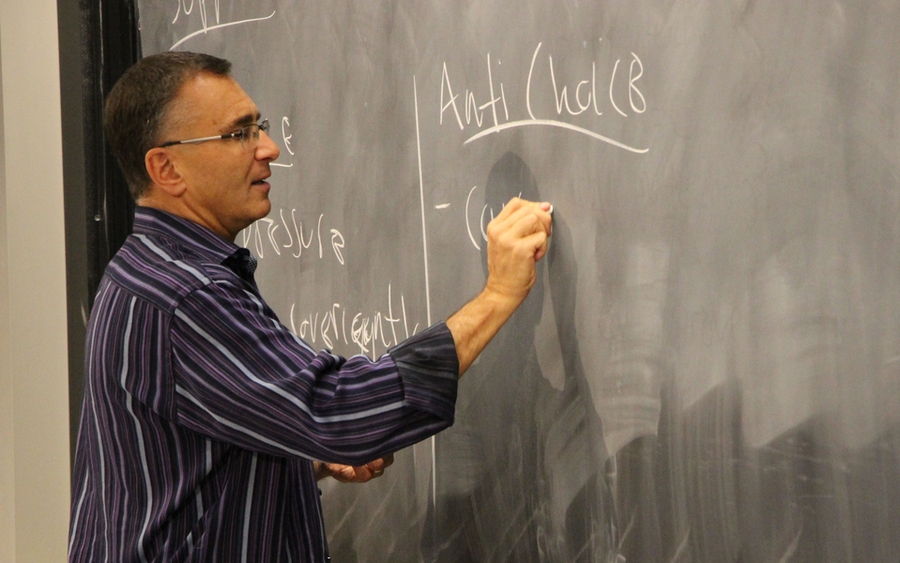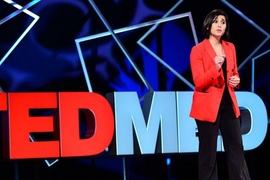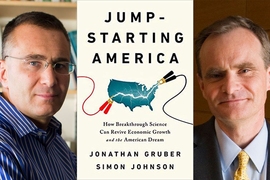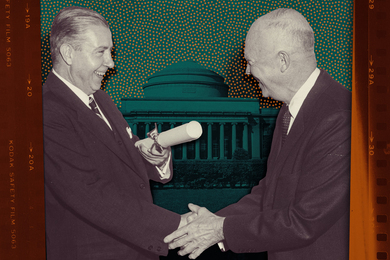Jonathan Gruber is the Ford Professor of Economics at MIT and director of the Health Care Program at the National Bureau of Economic Research. An associate editor of both the Journal of Public Economics and the Journal of Health Economics, he has been heavily involved in crafting public health policy. Gruber joined the MIT Policy Lab at the Center for International Studies as a core faculty member in 2017.
The Policy Lab works with faculty to create, support, and execute strategies to influence the policy community in an effort to maximize the impact of research on public policy. Launched in 2014, the Policy Lab has sponsored more than 90 projects with more than 50 principal investigators from all five schools at MIT. The lab distilled its experience connecting researchers to policymakers into a short online resource on the EdX platform, and it recently issued its fifth call for proposals.
Gruber sat down to discuss the importance of faculty members engaging in public policy, as well as some successes of the Policy Lab.
Q: What is the MIT Policy Lab and why did you decide to get involved with the program?
A: The MIT Policy Lab is a vital initiative begun out of the Center for International Studies, which provided seed funding that was then supplemented by the dean of the School of Humanities, Arts, and Social Sciences (SHASS) and the provost. The idea of this initiative is to build a series of connections between MIT faculty and policymakers.
While there is a whole host of policy-relevant research being carried out at MIT, there are two important barriers to that work influencing policy decisions: the translation of sometimes quite complicated research findings into policy relevant lessons, and making the connections between MIT faculty and relevant government policymakers.
So far, this initiative has been very successful in overcoming both of these barriers. Our excellent managing director, Daniel Pomeroy, has wide-ranging experience in a variety of scientific fields, as well as experience in science policy in Washington, D.C., making him a perfect person to help faculty members translate their work into policy-relevant discussions. Our generous funding from SHASS and the provost has allowed us to provide financial support to faculty who want to dedicate time to this activity and/or hire students to help. And the connections of all of our leadership in government, as well as partnership with the MIT Washington Office, has allowed us to make valuable connections between researchers and policymakers.
I learned about the Policy Lab through discussions with MIT leadership about my frustrations with the lack of translation of MIT's research to the policy landscape. When I found out about the Policy Lab I was very excited to realize that an institution already existed to facilitate this translation.
Q: Why do you think it is important for faculty to engage with public policymakers?
A: In my view, one of the central fights in the U.S. today is over the role of expertise and the scientific method more generally. Traditionally, when policymakers wanted to make decisions over technically complicated issues, they and their staff turned to subject-matter experts to help. This process was supported by the public's respect for such experts; after all, Time magazine once named “U.S. Scientists” as Man of the Year!
Both the public support for scientific expertise and policymakers’ willingness to rely on evidence have diminished over time. Partly this reflects a set of political developments which have led to general lack of respect for expertise or the use of the scientific method over personal intuition and biases. But the problem is exasperated by an increasingly specialized and distant base of academics who are interested solely in impressing each other, and not providing translation of their insights to the general public.
For both of these reasons, it is a critical time for academics to focus some of their energy on engaging with policymakers and the public. The Policy Lab is an excellent resource for facilitating those interactions.
Q: Since joining the MIT Policy Lab as a core faculty member in 2017, what have you seen as the most successful aspects of the program?
A: Two different aspects of the Policy Lab have been very pleasant surprises to me. The first is faculty excitement and willingness to engage with the program. I thought that the Policy Lab would have to work hard to get any faculty to participate. But I was, fortunately, very wrong: From the beginning there have been an abundance of faculty who are very excited about this initiative and eager to participate. Indeed, we have been unable to support all of the requests that we have received! The fact that there is this pre-existing demand for an initiative of this type is very exciting.
The second is the ability of the Policy Lab to leverage relatively the limited time of our staff and small grants to make real and valuable connections in the policy world. A variety of projects have already yielded significant impacts, on topics as diverse as using fluid dynamics to predict the transmission of disease and using predictive modeling to help assess the environmental implications of deep-sea mining. These are vital policy issues that cannot be effectively addressed without the kind of scholarly work that MIT brings to bear — and we are seeing that expertise being used to make a real difference.
The model that the MIT Policy Lab has created over the last five years has proven to be an effective and efficient way to connect MIT research to public policy. I hope that we can continue to build on these successes to provide a platform for broadly sharing the enormous policy-relevant knowledge base at MIT with the world.
Editorial team: Dan Pomeroy & Michelle English








